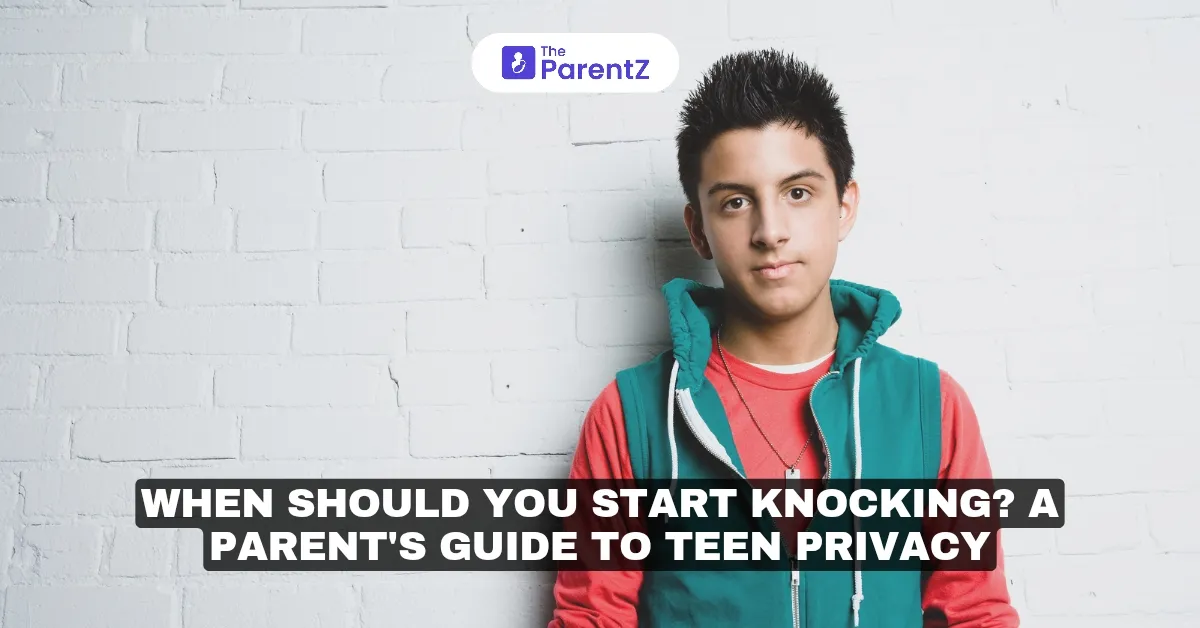Imagine walking into your teenager's room to find them frantically closing their laptop or jumping with surprise. That awkward moment perfectly captures why we need to talk about knocking on doors and respecting teen privacy.
Understanding the Privacy Shift
The transition from having a young child to a teenager who craves privacy can be challenging for many parents. One day, they're begging to sleep in Mom and Dad's bed, and the next, they're requesting a lock for their bedroom door. This shift often leaves parents wondering when and how to adjust their approach to their child's personal space.
When Should You Start Knocking?
Most child development experts suggest that parents should begin knocking on their children's doors around age 11-13, coinciding with the start of puberty. During this time, kids become increasingly aware of their bodies and develop a natural need for privacy. However, the exact timing often varies depending on the child's maturity level and individual development.
Walking Down Memory Lane
For parents struggling with this change, it helps to remember their own teenage years. Those memories of wanting a private phone conversation, writing in a diary, or simply having a moment alone to process emotions might help them understand their teen's perspective better. Today's teenagers face these same needs for privacy, amplified by social media, online friendships, and digital communication.
The Impact of Respecting Boundaries
The benefits of respecting a teenager's privacy extend far beyond avoiding awkward moments. When parents knock before entering, they:
- Build trust and show respect for boundaries
- Help teens develop a sense of independence and autonomy
- Demonstrate that everyone deserves personal space
- Create an environment where teens feel secure sharing their thoughts and feelings
- Model proper boundary-setting behavior that teens can apply in their own relationships
Balancing Safety and Privacy
However, many parents worry that too much privacy might lead to dangerous or risky behavior. This concern is valid, but research shows that teens who feel their privacy is respected are actually more likely to open up to their parents about important issues. They're also more likely to develop healthy boundaries in other relationships.
Practical Guidelines for Parents
Finding the perfect balance between supervision and privacy isn't always straightforward. Parents can consider these practical guidelines:
Basic privacy rules might include knocking and waiting for a response before entering, avoiding barging in during phone calls or video chats, and respecting closed doors during homework time or when teens are getting dressed. Parents should also discuss expectations about overnight privacy rules and emergency situations.
Setting Clear Boundaries
The bedroom door policy should come with clear family guidelines. For instance, doors can be closed but not locked during the day, they must remain unlocked at night, and parents maintain the right to enter if they have serious concerns about safety. These rules help teens understand that privacy is a privilege that comes with responsibility.
Digital privacy deserves its own consideration. While monitoring online activity is important for safety, teens also need some digital space to develop their identities and relationships. Parents might consider gradually increasing digital privacy as teens demonstrate responsible behavior.
When Safety Takes Priority
Sometimes, privacy needs to take a backseat to safety concerns. If parents notice warning signs like sudden behavior changes, declining grades, or signs of depression, they might need to adjust privacy boundaries temporarily. The key is explaining why these changes are necessary and maintaining open communication.
Creating a culture of respect around privacy can start with simple conversations. Parents can initiate discussions about what privacy means to their teens, why it matters to them, and how the family can work together to meet everyone's needs while keeping safety in mind.
Remember that this transition is normal and healthy. When parents respect their teenagers' growing need for privacy, they're not just avoiding embarrassing moments – they're helping their children develop into confident, trustworthy adults who understand the importance of personal boundaries.
Conclusion
The journey from an open-door policy to knocking first might feel like a big change, but it's an essential part of raising teenagers. By approaching this transition with understanding and clear communication, parents can maintain a close relationship with their teens while respecting their growing independence.








Be the first one to comment on this story.